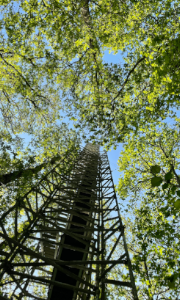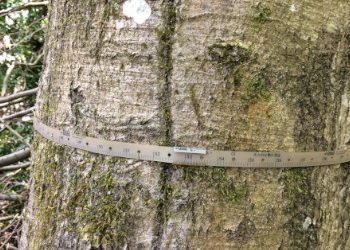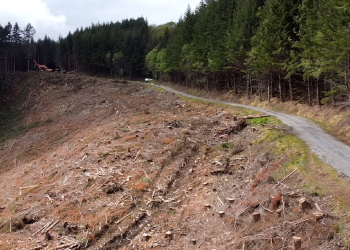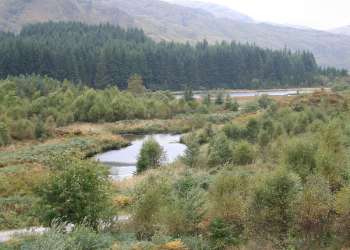New research note compares the carbon balance of two contrasting UK forest stands

The removal of carbon dioxide (CO2) from the atmosphere by trees, alongside other nature-based solutions such as peatland restoration, features in UK efforts to achieve Net Zero emissions by 2050. Understanding the carbon balances of UK forests is therefore essential for climate change mitigation strategies.
A new research note published by Forest Research compares the carbon balances of two contrasting types of UK forest stands – an upland evergreen coniferous plantation in the northeast of England (Harwood Forest) and lowland deciduous oak plantation in the southeast of England (Alice Holt Forest). The research note may be of particular interest to those involved or interested in woodland and forestry carbon assessments, management or the development of related policy.

We summarise the long-term measurements of CO2 exchange between the forest ecosystem and the atmosphere at each case study site, along with measurements of the soil carbon stocks and other stand characteristics. These measurements help to understand differences in the carbon cycle between the two stands. For example, total carbon stocks were larger in the more densely stocked coniferous plantation. Greater CO2 uptake was also observed in the coniferous plantation which remains photosynthetically active year-round.
Forest type, species composition, soil type and management history have major influences on the carbon balance. So, while these case studies cannot be used to generalise one forest type over the other, the research will inform the development of forest carbon models to study the effects of different woodland creation and management options on the forest carbon balance.
Read the research note: The carbon balances of two contracting forest stands growing in the UK (2023).
News details

Launch of Forest Lab, a new stewardship science initiative
Forest Lab enables UK woodland managers to become volunteer ‘stewardship scientists’ by joining science projects, collaborating with researchers and sharing data to support woodland resilience.

New case studies demonstrate climate change adaptation measures at three Scottish sites
Explore our new case studies that demonstrate how forest adaptation measures can be applied to reduce the climate change risks faced at three different Scottish sites.

Introducing the SUPERB project - upscaling forest restoration
Forest Research are working closely with Forestry and Land Scotland to develop a forest restoration demonstration in Queen Elizabeth Forest Park as part of the Europe-wide, Horizon 2020 SUPERB project.

Launch of Forest Lab, a new stewardship science initiative
Forest Lab enables UK woodland managers to become volunteer ‘stewardship scientists’ by joining science projects, collaborating with researchers and sharing data to support woodland resilience.

New case studies demonstrate climate change adaptation measures at three Scottish sites
Explore our new case studies that demonstrate how forest adaptation measures can be applied to reduce the climate change risks faced at three different Scottish sites.

Introducing the SUPERB project - upscaling forest restoration
Forest Research are working closely with Forestry and Land Scotland to develop a forest restoration demonstration in Queen Elizabeth Forest Park as part of the Europe-wide, Horizon 2020 SUPERB project.
